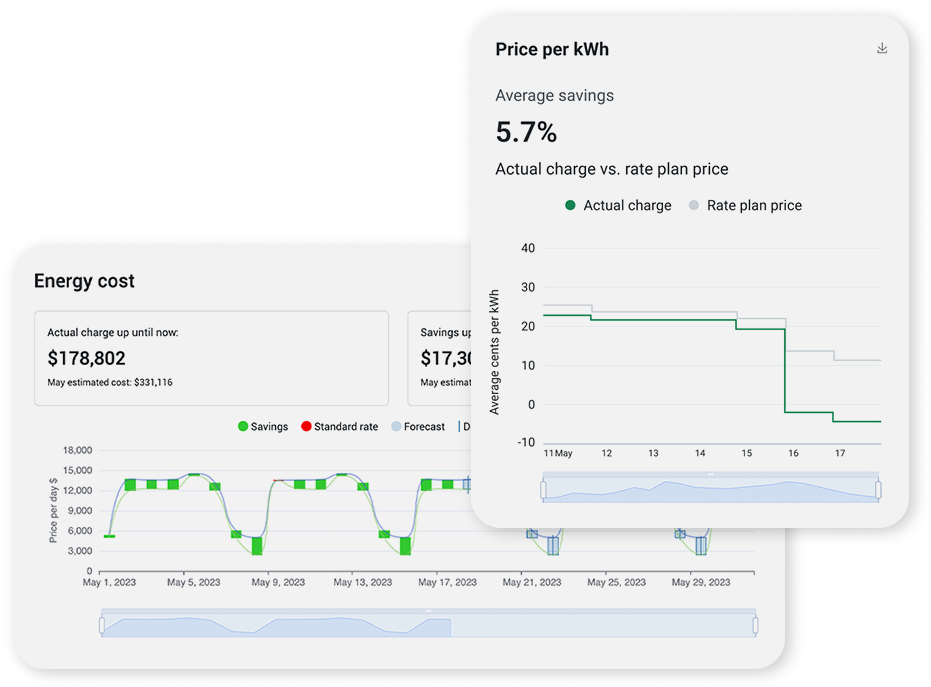Load Shifting
Employ a cost-effective charging schedule

By charging your battery using grid power at times when electricity costs less, you can lower your operational costs. Sparkion’s SparkCore™ energy management system automatically optimizes your charging and discharging to ensure reliable, cost-effective operation of all your site assets based on varying prices, renewable production, changing loads and available grid capacity.
See Load Shifting in action! Request a demo to witness how it transforms power management.
More to Explore
Renewables Integration
Discover how Energy Shifting complements renewable energy integration.
Automotive Dealers
Learn about Energy Shifting applications in the automotive sector.
Case Studies
Explore real-world applications of Energy Shifting in various industries.